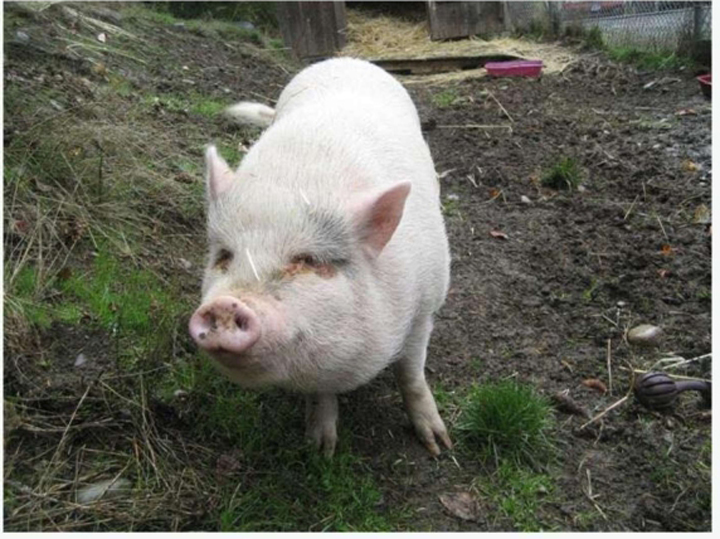An animal rights lawyer is calling for legal changes after a pet pig was adopted from the BC SPCA, then killed and eaten by its new owners.

Molly, a three-year-old Vietnamese potbelly pig, was adopted on Jan. 19, after being nursed back to heath by the SPCA in the wake of a cruelty investigation. She made international headlines when it was revealed her adopters had killed her less than a month later. They have since publicly apologized on Facebook.
LISTEN: Animal rights lawyer calls for change after pig killed, eaten by adoptive owners
The BC SPCA says while staff were heartbroken to learn about Molly’s fate, her owners broke no law in killing the pig. Under Canadian law, animals are property and can be killed so long as it is done humanely.
WATCH: Molly the pet pig adopted from the BC SPCA killed and eaten by new owners

Speaking on CKNW’s The Lynda Steele Show, Animal Justice executive director Camille Labchuck argued those laws around animal ownership are too weak.
“The law doesn’t protect animals from being killed, it doesn’t give them the right to their own lives, it just protects them from being tortured, or harmed or suffering,” Labchuck said.
READ MORE: Pet pig adopted from BC SPCA killed and eaten by new owners
Labchuck argued that the outrage sparked by Molly’s death reflects a change in the public’s values when it comes to animals’ rights. She said Canada’s laws, written in the 1950s, are now out of step with those values.
“We now see cats and dogs as family members,” Labchuck added. “The idea that they’re just disposable property and that we can kill them on a whim because we’re bored with them, or for fun, or to eat them — I don’t think that really meshes with how people think about animals anymore.”
Labchuk said she hopes Molly’s case sparks a conversation around how factory farmed animals — who don’t have names — are treated.









Comments